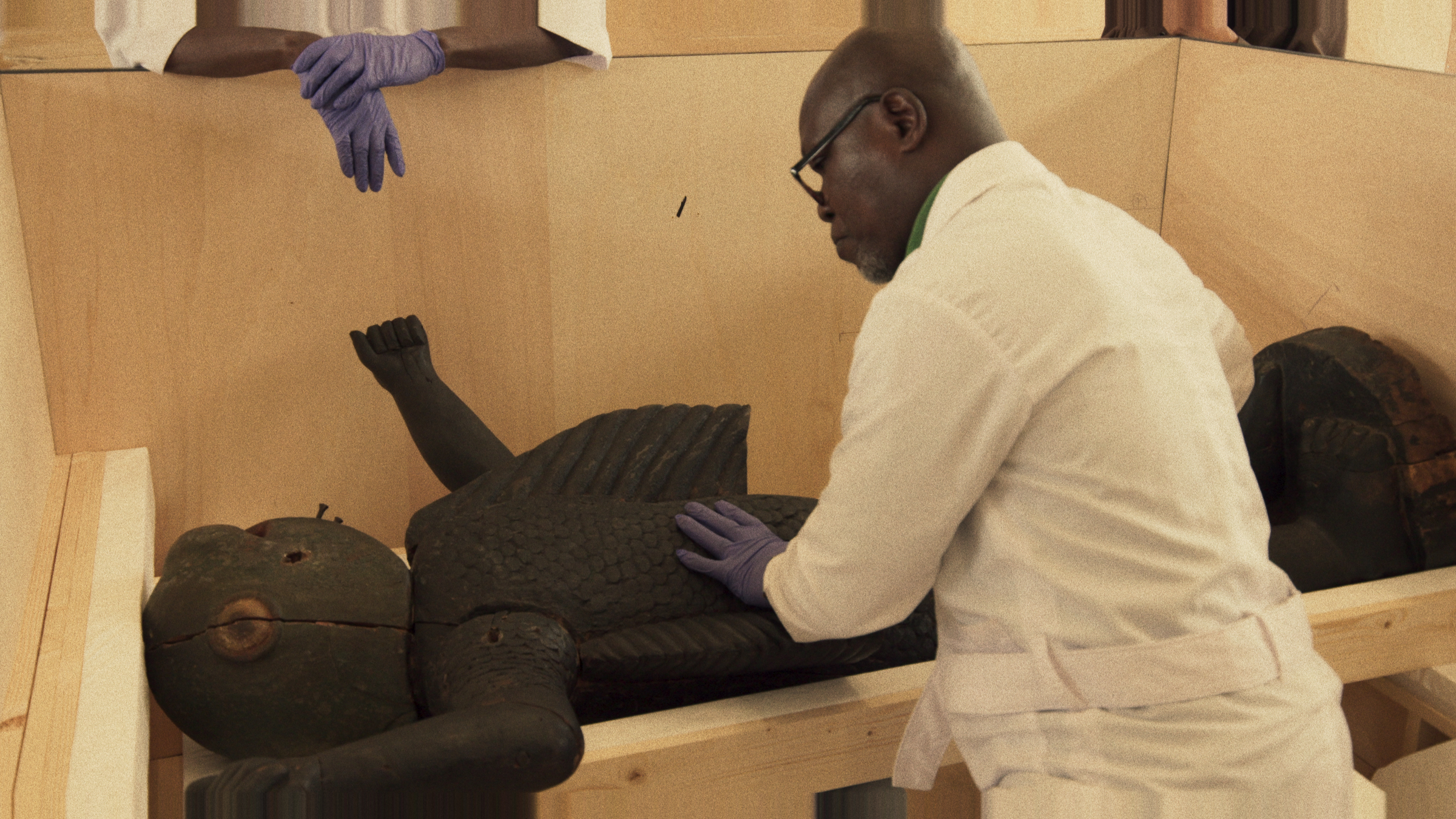French-Senegalese filmmaker Mati Diop’s new documentary, Dahomey (2024), examines the complexities surrounding France’s 2021 repatriation of 26 stolen treasures to the Republic of Benin (previously the Kingdom of Dahomey). The 68-minute film, which premiered and won the Golden Bear at this year’s Berlinale, seeks to dismantle stereotypes of the African nation as a monolith by prioritizing individual agency and personal narratives — even going so far as to give a voice to the 26th repatriated treasure.
In the first 30 minutes of the documentary, Diop gives viewers a behind-the-scenes look at the physical process of repatriation. She spliced shots of liminal spaces and moments of solitude with footage of priceless Beninese statues and artworks, looted by the French during the invasion of the Kingdom of Dahomey in the late 19th century, being packed into custom-fitted crates and carefully transported by air and truck.
The 26 objects were held at the Quai Branly Museum in Paris and taken to Benin’s largest city, Cotonou, for their grand return and display at the presidential Palais de la Marina. The film’s narrator, a personified version of the statue depicting King Ghezo, describes a sense of anxiety about going back to his point of origin.
Bringing a voice to the returned pieces was a priority for Diop, who told NPR that “the first gesture was to make sure these artifacts stopped being objectified and could again become subjects with agency, with point of views, with subjectivity.”

The ceremonious return of the artifacts leads to the film’s passionate crescendo — a spirited student seminar on the topic at the University of Abomey-Calavi in southern Benin. With the rapid volleying of personal interpretations, opinions, and hopes surrounding the restitution, Dahomey picks up the pace as the students dissect the implications of decolonization and the future of Benin and its forthcoming generations.
“Most of the archives from Africa have been filmed by colonizers, and so I think it’s very important for us to take in charge through cinema our stories,” Diop said to NPR, having previously expressed that she felt that it was her “duty” to create the documentary.
Several students in the seminar stated that the return of 26 works out of 7,000 looted objects held abroad is “an insult,” with one alleging that “90% of Benin’s cultural heritage is overseas.” Another counters their points, noting that even if material culture has been abducted, “our immaterial heritage, our dances, traditions, and know-how are still in our country.”
The students also deliberate on the restitution, a return of the nation’s past, and how it will shape Benin’s contemporaneity and future from economic, sociopolitical, religious, and generational standpoints.
“So much about that debate is about listening to what the other has to say, which is probably one of the reasons why this debate is so rich and so complex,” Diop explained.
A MUBI release, Dahomey is now screening at select locations across the United States, including the IFC Center and the Lincoln Center in New York City.

